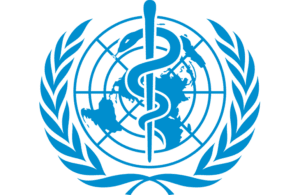 When confronting an onslaught of new SARS-CoV-2 variants, COVID-19 vaccine makers such as Pfizer (NYSE:PFE) and Moderna (NSDQ:MRNA) have tested tweaked versions of their vaccines but ultimately decided that they were unnecessary.
When confronting an onslaught of new SARS-CoV-2 variants, COVID-19 vaccine makers such as Pfizer (NYSE:PFE) and Moderna (NSDQ:MRNA) have tested tweaked versions of their vaccines but ultimately decided that they were unnecessary.
Signs are growing that vaccines developed based on the original strain of the novel coronavirus will struggle to offer durable protection against the omicron variant.
A World Health Organization (WHO) technical advisory group concluded that current COVID-19 vaccines might require modification but acknowledged that more research is needed.
In an interim statement, the independent group also concluded that “a vaccination strategy based on repeated booster doses of the original vaccine composition is unlikely to be appropriate or sustainable.”
The body also urged that governments worldwide ramp up the distribution of current COVID-19 vaccines.
The WHO advisory panel also predicted there were multiple pathways for drug developers looking to develop the next generation of COVID-19 vaccines.
One option would be a monovalent vaccine targeted at one or more predominant circulating variants. Still, this strategy could prove to be unsustainable in the long run, given the quick emergence of SARS-CoV-2 variants and the months-long timelines of modifying vaccines.
Another option would be a multivalent vaccine with antigens from various SARS-CoV-2 variants of concern.
Finally, a pan SARS-CoV-2 vaccine would theoretically work against all variants.
The WHO advisory panel urged manufacturers to share data about vaccine candidates to enable “global coordination” of future mass vaccination initiatives.
Pfizer CEO Albert Bourla recently announced that the company had already begun manufacturing an omicron-specific vaccine in the event it would be necessary in spring.
Pfizer is also working on a hybrid version of its vaccine, co-developed with BioNTech (NSDQ:BNTX),
Moderna is planning to make an omicron-specific vaccine available in the fall.
Dr. Shaun Truelove, an infectious disease epidemiologist at Johns Hopkins Bloomberg School of Public Health, recently told CNBC that the benefits of an omicron-specific are likely to be limited given the transmissibility of the variant. “Everybody’s going to be infected,” he quipped.
In related news, the WHO recently concluded that omicron is likely to infect half of the people in Europe in the next six to eight weeks, based on projections from the Institute for Health Metrics and Evaluation.